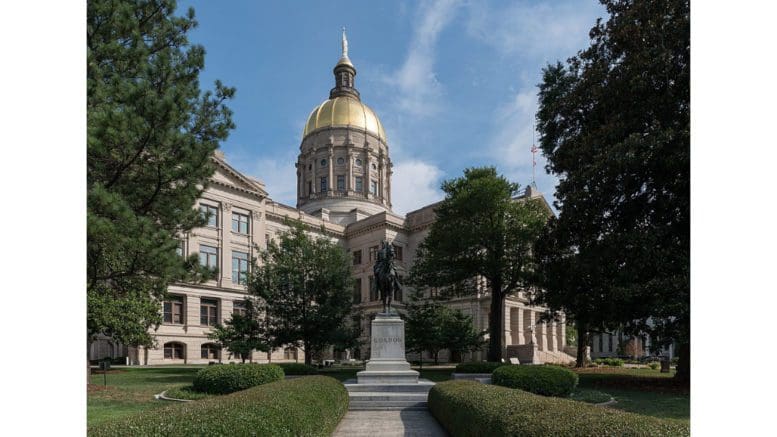by Stanley Dunlap, Georgia Recorder [This article first appeared in The Conversation, republished with permission]
March 6, 2023
Several bills that have the potential to change Georgians’ voting laws arrive at a crossroads Monday, when legislators decide which bills make the deadline for legislation to smoothly move from one chamber to another.
Monday’s Crossover Day in the Georgia Legislature however doesn’t mean a dead end for 2023 legislation that ranges from banning local governments from setting up absentee ballots drop boxes to changing how runoffs are settled.
On Friday, the House Governmental Affairs Committee held hearings on several election bills to spell out more stringent rules for storing election ballots and other documents, giving the option of municipalities using instant runoff voting to determine the winner and allowing candidates to win a race if they receive at least 45% of the votes.
Meanwhile, the most controversial election bill of the 2023 legislative session is Senate Bill 221. It advanced through a Senate Ethics Committee after a flurry of amendments and doubts were raised about its legal status. The bill would prohibit counties from providing absentee drop boxes, expands opportunities for mass eligibility challenges, and adds ballot security measures.
Sen. Max Burns, a Sylvania Republican, sponsored the more controversial legislation that cleared the committee hurdle before Monday’s Crossover Day, Burns has said that the bill builds upon the state’s 2021 voting law overhaul by improving ballot security and better ensuring that ineligible voters are taken off the voter rolls.
An election bill that won’t be under the gun at Monday’s deadline is another Burns’ measure that the Georgia Senate advanced Thursday intended to prohibit any county or municipal government officials from directly receiving donations from outside organizations to administer elections.
Burns’ Senate Bill 222 advanced to the House on a party-line vote as GOP lawmakers vowed to stop outside organizations and nonprofits from donating millions of dollars to offset the costs of running elections like in a 2020 election cycle that was upended by the COVID-19 outbreak.
Democratic legislators argued against handing oversight of election donations on an underfunded secretary of state’s office. They say SB 222 fails to account for significant population differences among Georgia’s 159 counties.
During the GOP’s 2021 election law revamp, Democrats called it grossly unfair for Republican lawmakers to burden local election officials with more unfunded expenses.
Republican lawmakers complained Thursday that liberal-leaning benefactors and organizations were directing money to metro-Atlanta counties and other Georgia communities with favorable Democratic voting history.
The money sent to bolster Georgia’s elections in 2020 came from a variety of sources ranging from the Southern Poverty Law Center to Facebook founder Mark Zuckerburg, and his wife, Priscilla Chan. donated $350 million for election administration spread across the nation.
Election administrators say, however, that those outside donations are helpful for any election season and allows local election administrators to use outside funding for expenses like equipment, poll worker compensation. During the pandemic public health crisis, it was especially hard to keep enough poll workers at voting precincts on election day.
“The issue with the third party funding is it is selective, not all 159 counties in Georgia enjoy that benefit,” Burns told Senate colleagues ahead of Thursday’s vote. “There is a mechanism for any donation to go through the secretary of state office and be equitably distributed but it cannot go directly to a county or directly to a superintendent or directly.”
Democratic Sandy Springs Rep. Josh McLaurin asked Republican lawmakers if private donations to support sheriffs and police departments should be treated differently than local election offices.
Democratic Sen. Harold Jones of Augusta called Thursday’s floor session a pivotal moment in which Republican lawmakers acknowledged the importance of equal distribution.
“Today is a monumental occasion because from this point forward when we talk about education, we’re talking about equal distribution of resources,” Jones said. “Health care, equal distribution of resources. Poverty equal distribution of resources. Criminal justice, equal distribution of resources.”
Georgia Recorder is part of States Newsroom, a network of news bureaus supported by grants and a coalition of donors as a 501c(3) public charity. Georgia Recorder maintains editorial independence. Contact Editor John McCosh for questions: info@georgiarecorder.com. Follow Georgia Recorder on Facebook and Twitter.



